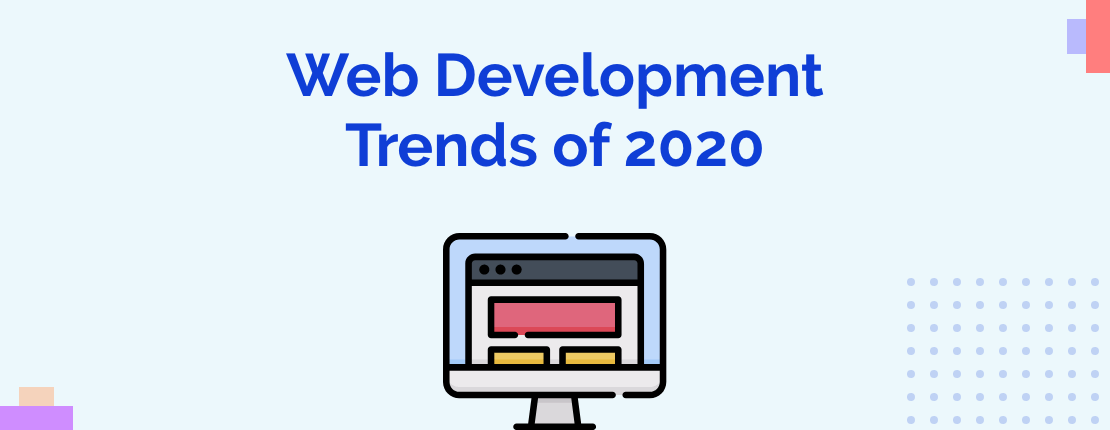"Getting better, every day", is a quote that aptly applies to the process of website development. Multiple factors contribute to the dynamism of this industry - the plethora of technologies that enable customer-centricity and the tilt towards digitalisation are among the prime ones.
Truth is, websites, being a significant customer touchpoint in digital transactions, deserve all the attention that they are getting.
Would you be able to imagine that websites originally began as a mix of text and hyperlinks, with little attention to visuals. A comparison with the modern websites that lean heavily on visual elements and ease of navigation validates the evolution this industry has undergone.
Let us, for now, look at the website development trends that are likely to take centre stage in 2020:
-
Progressive web apps(PWA)
Counted among the most impactful trends in web development, progressive web applications offer app-like experience from a web browser. They are independent of app-stores and need not be installed, thus saving space on personal devices. Unlike native apps, PWAs offer offline access and respond faster than websites. These features make them extremely user-friendly for the visitor. For developers, PWAs are easier, faster and more economical to develop. Unlike native apps, PWAs needn't have separate versions for iOS and Android devices. -
Motion UI
User interfaces are critical to website development as they largely determine the user experience of websites. Motion UI helps developers to make a website expressive and easy to navigate.For example, expressive elements such as animations, graphics and transitions that grab a visitor's attention are enabled through motion UI. A developer can quickly add CSS transitions and attractive animation effects with the help of Motion UI. -
Artificial intelligence and chatbots
Artificial Intelligence is a technology that has emerged to prominence in recent years. It helps add smartness to chatbots and automated interactions on websites. This contributes greatly, again, to the responsiveness of websites and lends the 'human touch', without manual intervention. A bot, for instance, uses AI to understand the contexts of a user's query and elicits the desired response in a pre-defined manner. In customer service, AI has extensive applications and enables chatbots to replace human agents to solve and process customer queries that need not be escalated.Natural language processing(NLP) or Natural language understanding(NLU) is a part of AI that deals with languages. The use of AI in websites enhances the overall customer experience by tackling customer pain points, making responses error-free and meeting the need for 24/7 servicing for clients. -
Cyber Security
Cybersecurity is increasingly in focus, given the increasing number of digital transactions. To become popular, a website must offer a safe environment for visitors to transact in. This applies to the safety of information as well as transactions. For developers, the thrust on cybersecurity translates to protecting the website and applications database from hackers, with the help of software solutions or consultants who specialize in this space.However, here are some simple and easy habits that can protect you from cyber-attacks without any specific intervention:- Change your passwords often
- Have a backup copy of important data and information
- Secure the wifi networks at your workplace
- Enable individual user accounts for every employee
Like we said, website development is a highly dynamic space and we will see a lot more novel features in the coming years. The good news is, your website experiences are only bound to get better and more interesting. For more updates on website development trends, do come back again.




